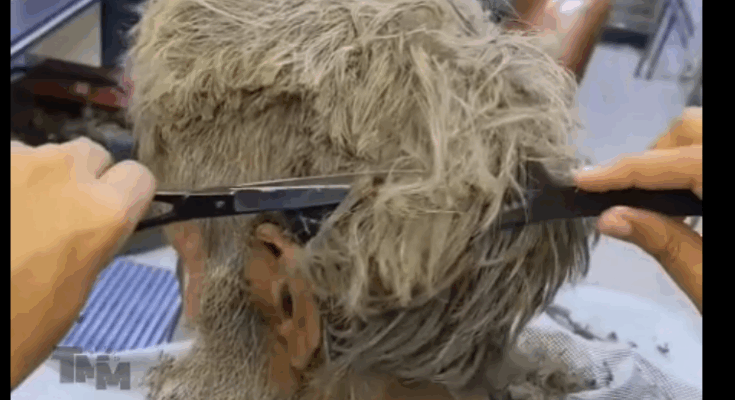Jose was 78 when I first noticed him—though the word “noticed” barely captures the strange pull I felt that morning.
He sat quietly on the same bench outside an old bookstore on 5th Avenue, wearing a faded trench coat several sizes too big and a knitted cap that sagged toward his right ear. The passersby didn’t glance his way, and the storefront beside him, once a thriving newsstand, had long been boarded up. He blended into the city like a crack in the sidewalk—present, enduring, invisible.
What caught my eye that morning wasn’t Jose himself, but the sound—tiny, delicate clicks—like the ticking of many clocks layered atop one another.
Curious, I slowed my pace and turned back. Jose sat hunched over something in his lap, eyes squinting, hands steady.
A broken wristwatch.
The face was cracked. The band torn. But he was working with meticulous care, like a surgeon mid-procedure.
I stood there longer than I should have.
“You fixing that?” I asked before I could stop myself.
Jose looked up, startled. His eyes—clouded, but still sharp—met mine. Then he nodded once.
“Used to be a watchmaker,” he said simply.
“Really?”
He tilted his head slightly, as if weighing how much to say. “Long time ago. Back when people cared what time it was.”
He returned to the watch, adjusting a small gear with a tool I hadn’t even seen him produce. My curiosity deepened.
“I’m Evan,” I offered.
He didn’t respond immediately. Then: “Jose.”
I visited him again the next day.
And the next.
It became a quiet ritual. I’d bring two coffees—black for him, with two sugars—and sit beside him before work. Some days we spoke, some days we just watched the morning rush blur past.
Jose fixed things. Watches mostly, but sometimes broken lighters, old radios, jewelry with sentimental damage. People started noticing—other regulars on 5th Avenue. A woman brought her late husband’s watch. A teenager gave him a broken compass from her grandfather. He never asked for payment. Just nodded, listened, and worked.
I asked him once why he did it.
He tapped the cracked dial of a wristwatch and said, “Some things deserve to be given time. Even if they’re old. Even if they’ve stopped.”
That winter, Jose’s corner became a small legend. People would say, “Go see the watchmaker on 5th.” A quiet reverence surrounded him. Still, Jose never spoke much about his past. I didn’t push.
But one day, as snow began to fall lightly around us, he handed me a tiny silver pocket watch.
“This was mine,” he said. “From when I had a shop. From when I had a daughter.”
I turned it over gently in my hands.
“What happened?” I asked softly.
His voice was barely audible. “Lost her. To a car accident. Her mother left after that. And I… I just stopped keeping time.”
Silence settled between us like the snow on the empty bench beside him.
“But you’re fixing time again now,” I said.
He gave me the smallest smile I’d ever seen.
That spring, Jose didn’t show up for a week.
I searched. Called local shelters. Even checked hospitals. Nothing.
On the eighth day, I found him—curled beneath an awning near 7th Street, shivering, weaker than I’d ever seen him.
He looked up at me, his voice hoarse.
“I thought I had more time.”
I stayed with him at the hospital. The diagnosis wasn’t complicated: age, exposure, pneumonia. They stabilized him. I brought his tools. He didn’t want TV. Just the sound of gears and the soft rhythm of clocks.
When he was discharged, I didn’t take him back to the bench.
I took him home.
My guest room became his. My apartment filled with quiet clicks and polished brass. My life filled with steady purpose.
Months passed.
Jose got stronger. He ate more. Laughed once or twice. He fixed a music box for my niece and repaired a broken clock that had belonged to my grandfather. He never stopped working, never stopped listening.
Then one morning, I woke to find the apartment quiet. No ticking. No tools clinking.
Just a note on the kitchen table.
Evan—thank you for giving me back something I thought was gone. Not time—company. You listened. You asked. That’s all I ever really needed. I’m heading west. I want to see the ocean again. And maybe fix a few things along the way. Keep the watch. Wind it when you miss me.
Jose
I never saw him again.
But every morning, I wind that silver pocket watch. It ticks softly on my desk, a reminder that sometimes, the people we think are invisible… have the most to show us.
They don’t need rescuing.
Just noticing.
